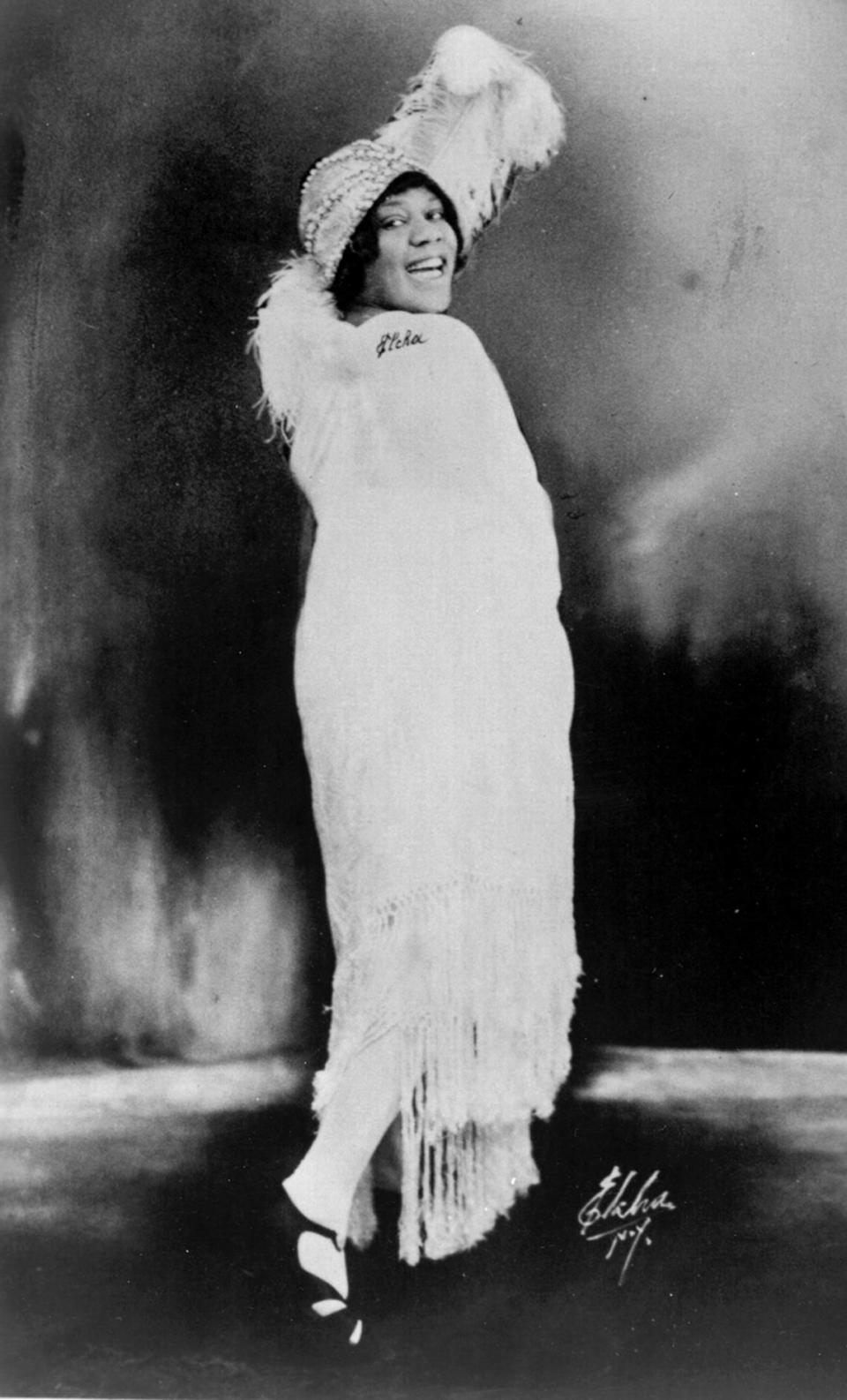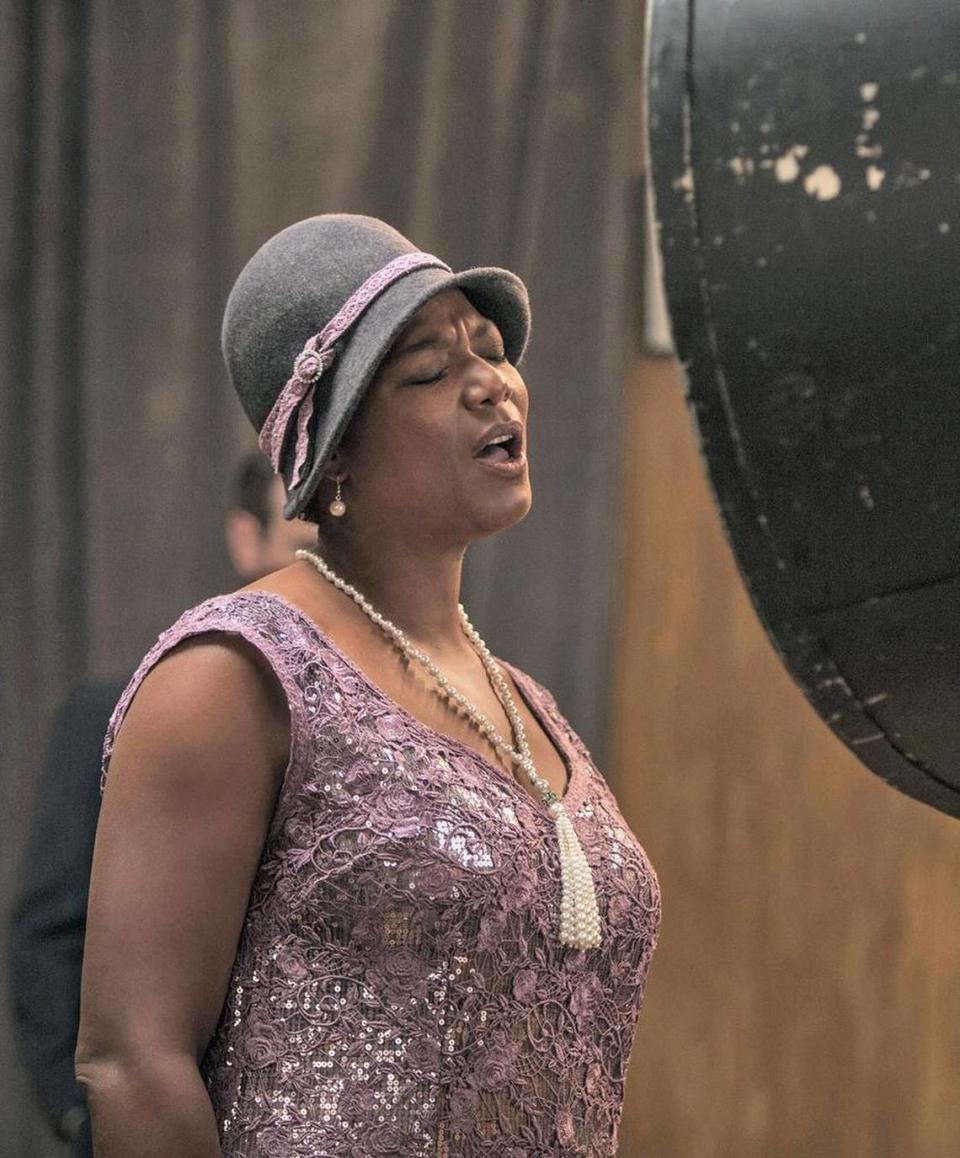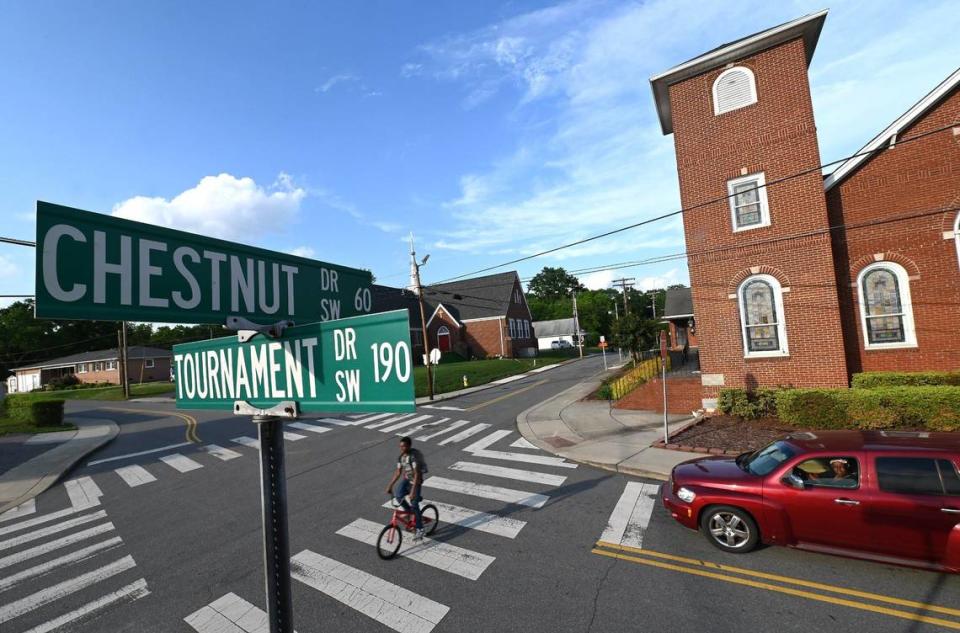The push to commemorate the night Bessie Smith cussed and chased the KKK out of Concord
By the summer of 1927, Bessie Smith, the “Empress of the Blues” herself, was enjoying a high-riding career when her personal traveling tour railroad car pulled into Concord.
Smith was barnstorming the South, performing her act under a canvas tent for Black audiences or in segregated theaters. One sweltering night in July, it took her to the heart of Concord’s Black community in the Logan neighborhood.
What transpired that evening — when Smith stood up to a half dozen members of the Ku Klux Klan in white sheets and hoods threatening the show from outside the tent — would be detailed in the definitive biography of Smith, retold in the Ken Burns’ documentary “Jazz,” featured in the HBO movie “Bessie” starring Queen Latifah, and even inspire a children’s book.
It also inspired a local truck driver named Jeff Williams to petition the state for an historic highway marker to commemorate the event. A state marker advisory committee of historians will consider that request next week.
Williams first learned of the confrontation involving Smith a couple years ago, he recently told The Charlotte Observer, he while randomly watching the “Jazz” documentary with his wife.
The 50-year-old Mount Pleasant High grad has long been into all kinds of music, including jazz, and has played guitar in local rock bands for several decades. But he was only half listening when he heard the words Concord and North Carolina. Williams snapped to attention.
“It smacked me in the face,” he said. “I mean, I’ve lived in and around Concord my whole life and I can’t believe I never heard about this story. I would’ve loved to have had this little bit of history growing up.”

About Bessie Smith
Smith was a native of Chattanooga, Tennessee, born in 1894. She grew up orphaned and in poverty. Her voice was her way out, first with a traveling act on the Black vaudeville circuit that her brother also was in. Smith soon connected with none other than Ma Rainey, the “Mother of the Blues” and toured with her.
But Smith eventually lit out on her own, her popularity soaring with such songs as “Down Hearted Blues,” “The St. Louis Blues” and “T’aint Nobodys Biz-Ness If I Do.” She signed a recording deal with Columbia in 1923, which further accelerated her fame, even as the record company paid her by the song but not with royalties.
During the Roaring Twenties, biographer Chris Albertson noted, Smith was constantly touring and playing to packed venues as she earned up to $2,000 a week (roughly $36,000 a week in today’s dollars). That was more money than any other Black performer was making at the time.
A 2018 NPR profile described Smith this way: “None of the others could sing with her combination of field holler and Jazz Age sophistication.... She was the first bisexual, alcoholic, horsewhipped-by-segregationists, beat-out-of-songwriting-royalties, lemonade-making, dark-skinned singing-sensation whose husband cheated on her with a light-skinned ‘Becky with the good hair.’ ”
When the Great Depression struck, Smith’s fortunes took a dive along with the rest of the country’s. Her personal problems mounted too, especially after her volatile marriage fell apart. And her record label dropped her. Still, she kept on singing.
In 1937, she died from injuries in a car accident at age 43 in Mississippi.
But her influence continued to reverberate through the decades, inspiring artists from Dinah Washington to Mahalia Jackson to Janis Joplin. And after Joplin learned that Smith was buried in an unmarked grave in Philadelphia, she helped pay for a tombstone.
Smith is featured in the Smithsonian’s National Museum of African American History and Culture, and was inducted into the Rock and Roll Hall of Fame in 1989 in the “Early Influences” category. In an essay for the hall ceremony, Albertson quoted Joplin saying, “She showed me the air and taught me how to fill out.”

What happened that night in Concord
So what of that fateful summer night in Concord in the 1920s?
In his application for the historic marker, Williams cited Albertson’s recounting. In his book, Albertson, who died in 2019, had spoken with Smith’s niece and sister-in-law for this account:
It was a moonlit, steamy night for the performance, and one of the musicians needed some air. Upon stepping outside, he saw the hooded Klansmen pulling up the tent’s stakes, trying to collapse it. He ran back in and alerted Smith.
She stormed out, swearing and trailed by a few prop boys she ordered to follow her.
That’s when she confronted the six men of the KKK, their white robes seen shining under the moonlight. Smith stood near them, hand on her hip and shouted: “What the f--- do you think you’re doing? I’ll get the whole damn tent out here if I have to. You just pick up them sheets and run.”
She swore at them some more before they quietly skulked away. “I ain’t never heard of such s---,” she said. Then Smith returned to the tent and went right back to singing and dancing for the crowd.

The tent where it happened
The only detail lacking in Albertson’s book is exactly where the confrontation occurred.
For that, Williams turned to a book written by a local author and historian, Bernard Davis Jr., titled “Portrait of the African American Experience in Concord NC: 1860-2008.” The book referenced the Klan incident, noting that the tent was in a field at the corner of what is now Tournament Drive and Chestnut Drive.
Shortly before the book came out in 2010, Davis said he interviewed a woman who was a child in the 1920s and recalled the area where the traveling tent shows like Smith’s would set up.
A pair of churches sit opposite one another at that intersection now, across from a couple parking lots and a food pantry building.
Arthette Walker is the historian for one of those churches, First Missionary Baptist. She believes something did happen between Smith and the Klan, even if some of the details may have changed over the years in the retelling.
She’s not surprised that the Klan had shown up, though, “because those were the times we lived in. You can read about lynchings, even in Cabarrus County,” Walker said. “I just find it interesting that she would’ve had the nerve to even approach them in such a powerful way.”
And based on her research of old maps for what structures were in place in the 1920s, Walker said the tent would likely have been pitched on the southwest corner of Tournament and Chestnut. The tent would have been behind where the church’s House of Hope food pantry (the former George Washington Carver Library) now stands, Walker said, citing Davis’ work.
Davis said he appreciated Williams’ interest in the area.
“For someone outside the community to come in and be interested in our history is wonderful,” Davis said.

‘I just want the state to recognize her’
After seeing the Burns documentary, Williams began trying to track down any information he could about what happened. He felt like he “went down a rabbit hole of research” for the project. But he was glad he did it.
When Williams felt he had enough information, he petitioned the North Carolina Highway Historical Marker program to consider a marker for Smith.
He proposed that the historical marker go up near the Tournament and Chestnut Drive intersection. He’s already familiar with the locale — his polling place is in one of the churches.
“I just want the state to recognize her,” Williams said. “She’s as foundational to American music, not jazz, not blues, American music, as Duke Ellington, or Chuck Berry or Frank Sinatra. And the fact that she played in Concord should be cause for celebration in the first place, right?”
After all, the marker program already commemorates the birthplace of John Coltrane in the small Richmond County city of Hamlet; Thelonius Monk’s birthplace in Rocky Mount; and Bull City Blues in Durham, honoring Black musicians from the 1920s-1940s who had their own distinctive regional style.
Williams called North Carolina a “breeding ground for jazz.” It just makes sense, he said, to honor Smith too.

What’s next for ‘Bessie Smith vs. the KKK’
The program dates to 1935, and there are more than 1,600 markers across North Carolina. It’s a joint program between the state Department of Natural and Cultural Resources (DNCR) and the Department of Transportation.
The markers spotlight places associated with people, places or events of statewide significance.
An advisory committee of history professors meets twice a year to evaluate new petitions, and sends recommendations to the DNCR secretary for a final decision. The committee’s next meeting is set for May 14 in Raleigh, and Williams plans to attend.
In a memo to committee members ahead of the meeting, the marker program’s staff noted there were no contemporary newspaper or other accounts of Smith in Concord, but Albertson had relied on oral histories for his book.
If the marker wins approval, the proposed language is: “BESSIE SMITH VS. THE KKK: At July 1927 concert, Ku Klux Klansmen confronted blues singer Bessie Smith, who made them leave. Occurred here.”
Williams is hoping for the best, but would appeal the decision if his request is rejected. He’d like to see the marker get the go-ahead and go up before the centennial of the incident in 2027.
“I’m a truck driver, man. I’m not a professional researcher,” Williams said. “I’m just a guy that came upon some information that I feel like more people should know about.”
More arts coverage
Want to see more stories like this? Sign up here for our free “Inside Charlotte Arts” newsletter: charlotteobserver.com/newsletters. And you can join our Facebook group, “Inside Charlotte Arts,” by going here: facebook.com/groups/insidecharlottearts.


